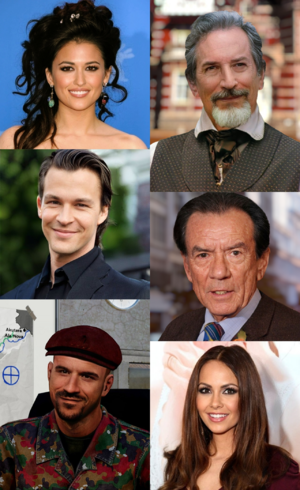Dairi: Difference between revisions
Jump to navigation
Jump to search
No edit summary |
No edit summary |
||
| Line 17: | Line 17: | ||
| ref3 = | | ref3 = | ||
| languages = [[Enyaman]], [[Norinnian]], {{wp|Vulgar Latin|Glacian}} | | languages = [[Enyaman]], [[Norinnian]], {{wp|Vulgar Latin|Glacian}} | ||
| religions = | | religions = Origan Christianity, {{wp|Catholicism|Fabrian Christianity}} | ||
}} | }} | ||
Revision as of 19:18, 7 April 2021
This article is incomplete because it is pending further input from participants, or it is a work-in-progress by one author. Please comment on this article's talk page to share your input, comments and questions. Note: To contribute to this article, you may need to seek help from the author(s) of this page. |
 | |
| Regions with significant populations | |
|---|---|
| 10.32 million | |
| 1.59 million | |
| File:Flag of Walzenia modern.png Walzenia | x.xx million |
| Languages | |
| Enyaman, Norinnian, Glacian | |
| Religion | |
| Origan Christianity, Fabrian Christianity | |
The Dairi or Dairi peoples are an ethnic group of Belisarian origin native to Enyama and who share a common ancestry, culture, and history as descendants of the colonies of Ala Nova and Innonland, of the Latin Empire and Ottonian region specifically. Though communities speaking older dialects exist, the largest among them the Glacii who speak a form of vulgar Latin, the majority of Dairi peoples are fluent in both Standard Enyaman and in the local language of Norinnian, a Romance language which is itself a mixture of Latin, Old Ottonian, and the Wabayan language.